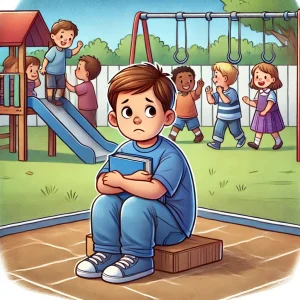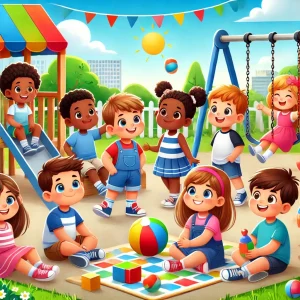Articulation vs Pronunciation: Essential Insights for Parents
By Wellness Hub
Last Updated: December 14, 2024
As parents, guiding your child through the complexities of speech development is crucial. Understanding the nuances between articulation and pronunciation can significantly enhance your ability to support their communication skills. This article aims to demystify these key concepts, providing straightforward insights to help you nurture your child’s speech with clarity and confidence. Dive into the world of Articulation vs Pronunciation to better equip yourself in fostering your child’s developmental journey.
What is Articulation?
Definition of Articulation in the Context of Speech Development
Articulation involves the precise movement of various speech organs—like the tongue, lips, and palate—to produce distinct sounds. These sounds are the building blocks of words and are crucial for clear speech. In the context of Articulation vs Pronunciation, developing good articulation skills in children is essential as it directly influences their ability to communicate effectively. It’s the mechanical aspect of speech that focuses on the physical production of sound, forming a foundational contrast with pronunciation, which deals with how these sounds are used fluidly in language.
Read More: Articulation Disorder in Children: Signs, Causes & Treatment
How Articulation Differs from Pronunciation
While articulation is about forming individual sounds, pronunciation is about how these sounds are put together to form words in a specific language, including the rhythm, stress, and intonation. Think of articulation as the way we hit the notes in a song, and pronunciation as how we sing the melody. Both need to work together harmoniously for clear and effective speech.
The Role of Speech Organs in Articulation
Articulation is a physical process that requires coordination among various speech organs. The tongue, teeth, and lips adjust and move to shape sounds, while the jaw and vocal cords play a supporting role. Each sound we make—whether a soft ‘f’ or a vibrating ‘r’—relies on these organs working in sync. Understanding this helps parents spot where their child might need support, from strengthening tongue muscles to practicing lip movements.
Understanding Pronunciation
Definition of Pronunciation and Its Importance in Effective Communication
Pronunciation isn’t just about the clarity of speech; it’s the art of making speech sounds in a way that is understood within a particular language community. Effective pronunciation means your child is not only understood by others but also engages in more meaningful interactions. This skill boosts confidence, enhances communication abilities, and is crucial in both academic and social settings.
Key Components of Pronunciation: Stress, Intonation, and Rhythm
Understanding the subtleties of pronunciation can dramatically improve how a child communicates. Here are the three key components:
- Stress: This involves emphasizing certain syllables within words. Stress can change the meaning of words, which is crucial in conveying the correct message.
- Intonation: This is the melody of speech. Rising and falling pitch patterns help express emotions, ask questions, or make statements.
- Rhythm: This refers to the pattern of sounds in speech, driven by stressed and unstressed syllables. It affects the natural flow and pace of speaking.
These elements work together to help your child not only speak clearly but also convey the right message with the appropriate emotional tone.
Differences Between Articulation and Pronunciation
Understanding the distinct aspects of articulation and pronunciation can significantly enhance how we support our children’s communication skills. While both are fundamental to speech, Articulation vs Pronunciation serve different functions and require different types of support and attention. Recognizing these differences helps us tailor our approach to more effectively aid in our children’s speech development.
Overview of the Distinct Focuses of Articulation and Pronunciation
Articulation and pronunciation may seem similar, but they focus on different aspects of speech:
- Articulation is about how speech sounds are formed. The physical act of moving the tongue, lips, and jaw to produce sounds is at its core. It’s the mechanics behind the sounds that come out of our mouths.
- Pronunciation, on the other hand, involves the correct formation of word sounds within a language, focusing on patterns of stress, rhythm, and intonation. It’s not just about the sound itself but how it flows into full words and sentences in meaningful communication.
Both are crucial for effective speech but require different approaches for mastery and correction.
Key Differences Between Articulation and Pronunciation
| Aspect | Articulation | Pronunciation |
| Definition | The physical act of producing individual sounds. | The way in which sounds are used in speech. |
| Focus | Individual sounds (phonemes). | Patterns of sounds (syllables, words). |
| Skills Involved | Tongue, lip, and jaw movements. | Stress, intonation, rhythm of speech. |
| Purpose | To produce sounds clearly. | To make speech understandable and fluent. |
| Practiced Through | Drills, mouth exercises. | Conversation, listening exercises. |
Comparative Analysis: Emphasis on Individual Sounds vs. Word Delivery
When comparing articulation and pronunciation, we see a clear division in focus:
- Articulation Emphasis: The emphasis here is on producing individual sounds correctly. This is critical especially for young children and non-native speakers who need to learn how to use their mouths to shape sounds that might not exist in their first language.
- Pronunciation Emphasis: This shifts towards how these sounds are used in actual speech — how words are said and how they are strung together in conversation. Pronunciation affects the clarity and understandability of spoken language in social and academic settings.
Why Parents Should Care
Understanding and supporting your child’s articulation vs pronunciation isn’t just about helping them speak more clearly—it’s about giving them the tools they need for comprehensive development in all aspects of their life. From academic success to social interactions, the way your child communicates plays a pivotal role. Grasping the nuances of Articulation vs Pronunciation is essential for ensuring they can express themselves effectively and confidently in any setting.
The Impact of Correct Articulation and Pronunciation on a Child’s Academic and Social Development
Effective communication is key to success both in the classroom and in daily life. Here’s how proper articulation and pronunciation can make a difference:
- Academic Performance: Children who articulate well are often better understood by teachers and peers, which can lead to better performance in school. Clear pronunciation can also aid in reading and writing, skills that are fundamental to academic success.
- Social Skills: Clear speech is crucial for making friends and interacting effectively with others. Children who communicate clearly face fewer frustrations and misunderstandings in their social interactions, boosting their confidence and social standing among peers.
Signs to Watch for in Children Struggling with Articulation and Pronunciation
Early intervention can make a significant difference in your child’s development. Here are some signs that might indicate your child is struggling with articulation or pronunciation:
- Repeating Sounds or Syllables: This can be a sign of difficulty in producing specific sounds clearly.
- Avoiding Speaking: Some children may choose not to speak much because they’re aware of their speech difficulties.
- Difficulty Being Understood: If you or others often find it hard to understand what the child is trying to say, it might be an indication of articulation or pronunciation issues.
- Frustration During Conversations: Noticeable frustration when trying to communicate can also be a red flag that a child is struggling with effective speech.
Signs of Articulation and Pronunciation Issues in Children
| Issue | Signs to Watch For | Possible Consequences If Not Addressed |
| Articulation Problems | Mispronouncing letters, difficulty with certain sounds, omitting sounds. | Misunderstandings, limited ability to express themselves clearly. |
| Pronunciation Problems | Incorrect stress on syllables, monotone speech patterns, misusing intonation. | Challenges in social interactions, academic struggles due to communication barriers. |
How Can Parents Help?
Supporting your child’s articulation vs pronunciation at home is a proactive step towards enhancing their communication skills. Here are practical, easy-to-implement strategies that can make a significant difference.
Practical Tips for Parents to Support Articulation and Pronunciation at Home
- Read Together: Regular reading sessions can improve your child’s pronunciation skills by exposing them to new words and proper articulation. Make it interactive by asking them to repeat difficult words.
- Practice Makes Perfect: Engage in speech practice games that make articulation fun. Use flashcards, sing songs, or even play games that emphasize different sounds and syllables.
- Model Clear Speech: Children often mimic the speech patterns of their parents. Speak clearly and slowly, enunciating each word, and they are likely to imitate this clarity.
- Use Technology: There are numerous apps designed to aid speech development. These can provide practice and feedback in an engaging, digital format that appeals to children.
- Create a Positive Environment: Encourage your child to speak by listening attentively and patiently. Avoid correcting them harshly; instead, repeat their statements with the correct pronunciation to model the proper way.
When to Seek Professional Help from Speech Therapists at Wellness Hub
While home practices are beneficial, some situations require professional intervention. Here’s when you might consider reaching out to a speech therapist:
- Persistent Issues: If your child’s speech issues persist despite home practice, it might be time to consult a professional who can identify underlying issues and provide targeted interventions.
- Social or Academic Impact: If speech difficulties are affecting your child’s social interactions or academic performance, professional help can provide necessary support to overcome these barriers.
- Frustration or Withdrawal: If your child shows signs of frustration or withdraws from communication, it could indicate that they are struggling more than they can manage on their own.
Wellness Hub: Supporting Your Child’s Speech Development
Introduction to Wellness Hub’s Speech Therapy Services
At Wellness Hub, we offer specialized speech therapy services tailored for children. Our skilled speech-language pathologists use proven methods and innovative tools to address various speech and language challenges. Whether your child struggles with certain sounds or needs broader language support, we’re here to help.
Enhancing Your Child’s Articulation and Pronunciation
- Customized Therapy Plans: We design individual speech therapy plans that focus specifically on improving articulation and pronunciation, ensuring clear and effective communication.
- Engaging Tools and Techniques: Using fun digital tools and interactive activities, we make speech practice enjoyable and engaging, helping children learn naturally and with enthusiasm.
- Parent Involvement: We empower parents with strategies and tips to support their child’s speech practice at home, reinforcing progress made during therapy sessions.
- Progress Monitoring: Our therapists regularly assess your child’s improvement and adjust strategies as needed to keep them moving forward effectively.
Conclusion
We’ve covered the importance of articulation vs pronunciation in your child’s speech development. Articulation helps your child make clear sounds, while pronunciation ensures these sounds form understandable speech. Struggling with these can impact their learning and social skills. If your child needs help or you want to boost their speech abilities, Wellness Hub is ready to assist. Our speech therapists provide personalized, fun ways to improve communication.
Frequently Asked Questions:
1. What is the difference between articulation and pronunciation?
Articulation involves how speech sounds are physically produced, using parts of the mouth like the lips, tongue, and teeth. For example, the sound ‘t’ requires the tongue to touch the roof of the mouth behind the teeth.
Pronunciation, however, refers to how these sounds are strung together to form words correctly, focusing on aspects like stress, rhythm, and intonation. Both are crucial for clear and effective communication.
2. Why is articulation important for my child?
Articulation is crucial because it determines the clarity of your child’s speech. Clear articulation helps in forming sounds correctly, which is essential for your child to be understood by others. Early development of these skills can impact their ability to read, write, and engage in conversations as they grow.
3. How can pronunciation affect my child’s learning?
Proper pronunciation is essential for effective communication, which directly affects a child’s ability to participate in class, interact with peers, and engage with educational content. Mispronunciation can lead to misunderstandings and reduced confidence, which might hinder academic and social development.
4. What are signs that my child might have articulation or pronunciation issues?
Signs to watch for include difficulty in making specific sounds (like s, r, or l), omitting sounds in words, adding extra sounds to words, or distorting sounds when speaking. If others frequently misunderstand or ask your child to repeat what they said, it could also indicate issues.
5. How can I help my child improve their articulation at home?
Engage in daily reading activities, clearly articulating each sound and word. Play games that involve speaking and listening, like repeating rhymes or singing songs that emphasize different sounds. Regular practice and providing a model of clear speech are key to improvement.
6. What does a speech therapist do to help with pronunciation?
A speech therapist assesses your child’s speech patterns and identifies areas for improvement. They use targeted exercises and games to address specific pronunciation issues, helping children learn the correct way to say words. Therapy often includes activities that improve oral motor skills and auditory discrimination.
7. When should I consider professional help for my child’s speech issues?
Consider seeking help if your child’s speech issues persist beyond the expected age for speech milestones, interfere with school or social interactions, or cause frustration or withdrawal. Early intervention from a speech therapist can prevent problems from becoming more entrenched.
8. Can improving pronunciation help my child socially?
Yes, effective communication is key to social interaction. Children who speak clearly are more likely to participate in conversations, make friends, and express their needs and feelings confidently. Improving pronunciation can boost self-esteem and social skills.
9. What resources does Wellness Hub offer for speech development?
Wellness Hub offers a variety of resources, including one-on-one speech therapy sessions, group workshops, and online materials like videos and practice exercises. We provide tailored support based on each child’s needs, backed by the latest research and techniques in speech therapy.
10. How do I get started with speech therapy at Wellness Hub?
To start, visit our website to learn more about our speech therapy services. You can book an initial assessment for your child, where a speech therapist will evaluate their needs and discuss a potential therapy plan. Our goal is to provide a supportive environment that fosters improvement and confidence in speech.
About the Author:
Rajini Darugupally
M.Sc., Speech-Language Pathologist (9+ years of experience)
Rajini is a passionate and dedicated Speech-Language Pathologist with over 9+ years of experience, specializing in both developmental speech and language disorders in children and rehabilitation in adults. Currently, at Wellness Hub, she thrives in a team environment that values innovation, compassion, and achieving results for their clients.
Book your Free Consultation Today
Parent/Caregiver Info:
Client’s Details:
* Error Message









